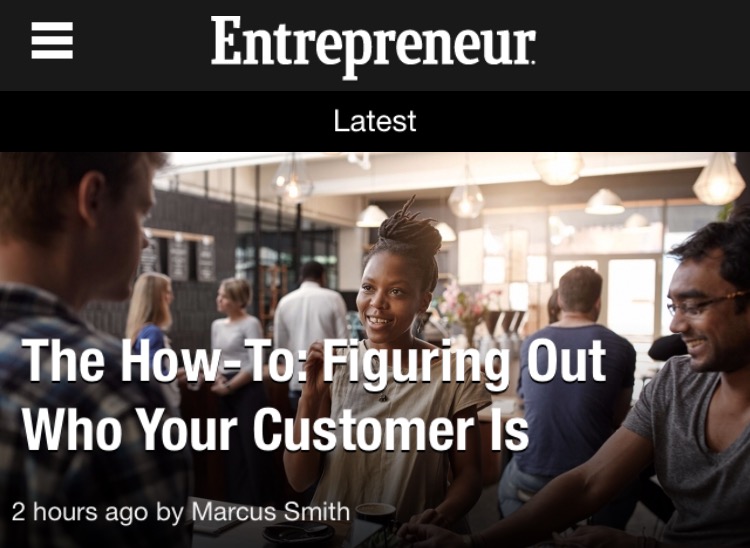The How-To: Figuring Out Who Your Customer Is
So here we are: we have started this little business from scratch, we have backed up all our strengths, got a bit of help on board with the things we are not so good at, and now, we are ready to head out into the big wide world with our brand and make it big… or are we?
The number of young entrepreneurs who I talk to, that have thought about every single thing about their enterprise except who exactly are they going to be selling their product or service to, is beyond frightening. Listen, there are millions of ideas out there, and we can debate all day long if they are good or not, but the bottom line is, for an idea to make a business, it needs someone to buy it. And that someone is your consumer, customer, or end user- call them what you will. We often think we know who the end user is, but it’s a sad reality that many times, we don’t really know who they are. It is therefore imperative at the early stages of your journey to really understand your consumer and essentially “who you are talking to” through your new business.
So how do you find out whom you are talking to? Follow these three easy steps:
1. Research It’d good to know the ins and outs of your product, yes, but do remember that we are trying to find a consumer for it right now, and the best way to do that is to ask around. I always find it easiest to ask those closest to us- you normally get the brutal truth from them, after all. So ask your friends and family or those in your network questions related to your product or business idea, and then listen to their feedback. Of course, another great tool is to use the internet, and search for similar concepts to yours, and then see who their consumer is- they may be yours too! There is one disclaimer here though. You are going to get a truckload of thoughts and opinions- use them wisely, yes, but do not let them sway you from your vision and why you started. Some people may love your concept (they are your potential clients), and some will laugh at it (they are clearly not potential clients, but they also may have a good reason for why they laughed at you).
2. Test For want of a better example, “all fine automobiles go through hours of testing,” and if they do, then why shouldn’t your business idea! So put your product/service/brand out there, and see how people react to it- drip-feed it at the start to who you think your consumer is. Be smart about this (in that no one buys a car in the testing phase), so do not be shortsighted and start trying to charge for what you hoping to sell. It sounds super simple, but it is a mistake many startups are making! Your test phase is not only a phase for you to test your consumer base, but it’s also a time where you can fine-tune your concept, so treat it with care. Hard and smart work here will really help you identify who you are talking to with your new business.
3. Never stop asking It may sound super simple to ask everyone about your product, and that is exactly what you should be doing. The masterful trick here though is listening to what people say, and reacting to their feedback in the right way. From a consumer standpoint, engagement and loyalty explodes when the consumer feels like the brand has listened to their thoughts, and then acted on them. If you can create this with your consumer, then you are one step closer to developing consumers for life. Go the other way, and you will be scratching around everywhere for customers, and you will always be struggling.
Could this be any simpler? This is what you may be asking yourself, and I agree with you. This is, in essence, the base of not only business, but common sense in life. But look at how many brands launch without going through these simple things- they get so tied up in the great vision they have created, how they are going to change the world, be the next big thing or make millions, and forget that for any of that to come to life, their consumer is a pretty important part of the equation. So before you get too deep into the success that I am sure you will have, just take some time to identify clearly who you are talking to, do some research, test, never stop asking, and always remember to listen. And although these things will cost you a little time, the investment of this time at the start will pay dividends forever.


Comments